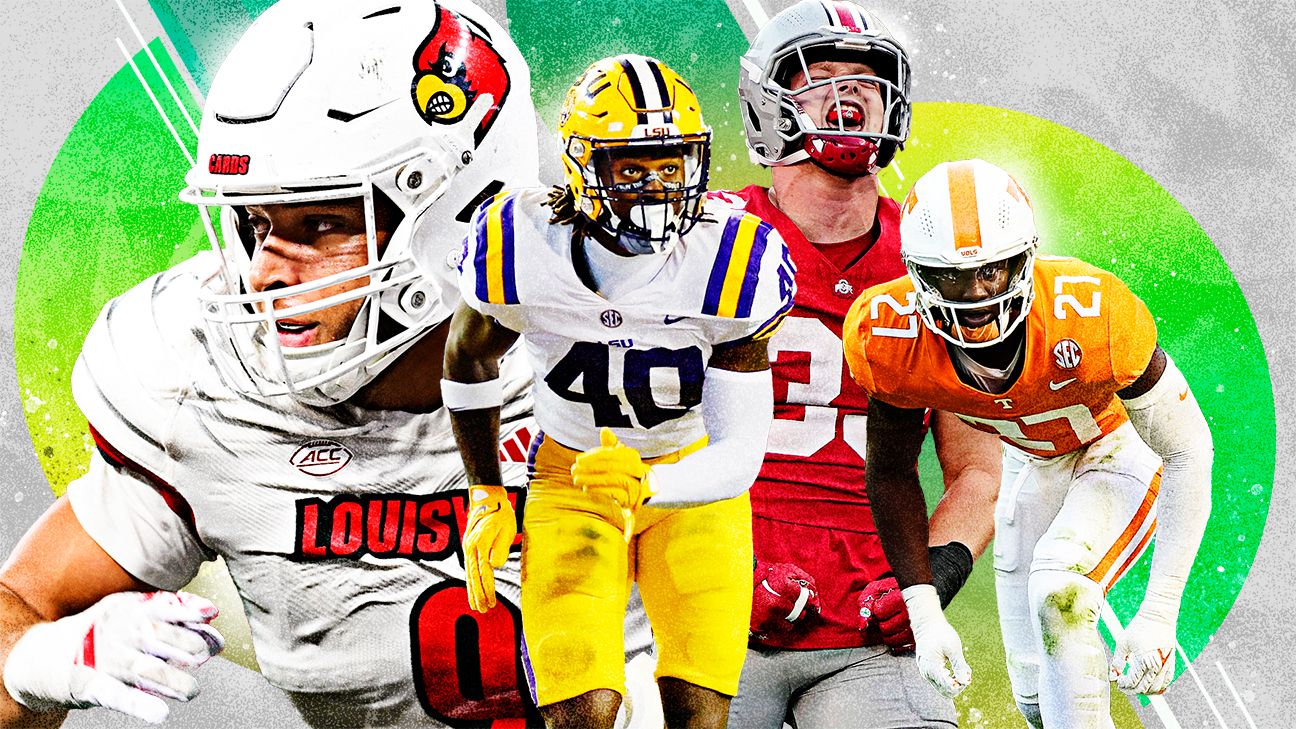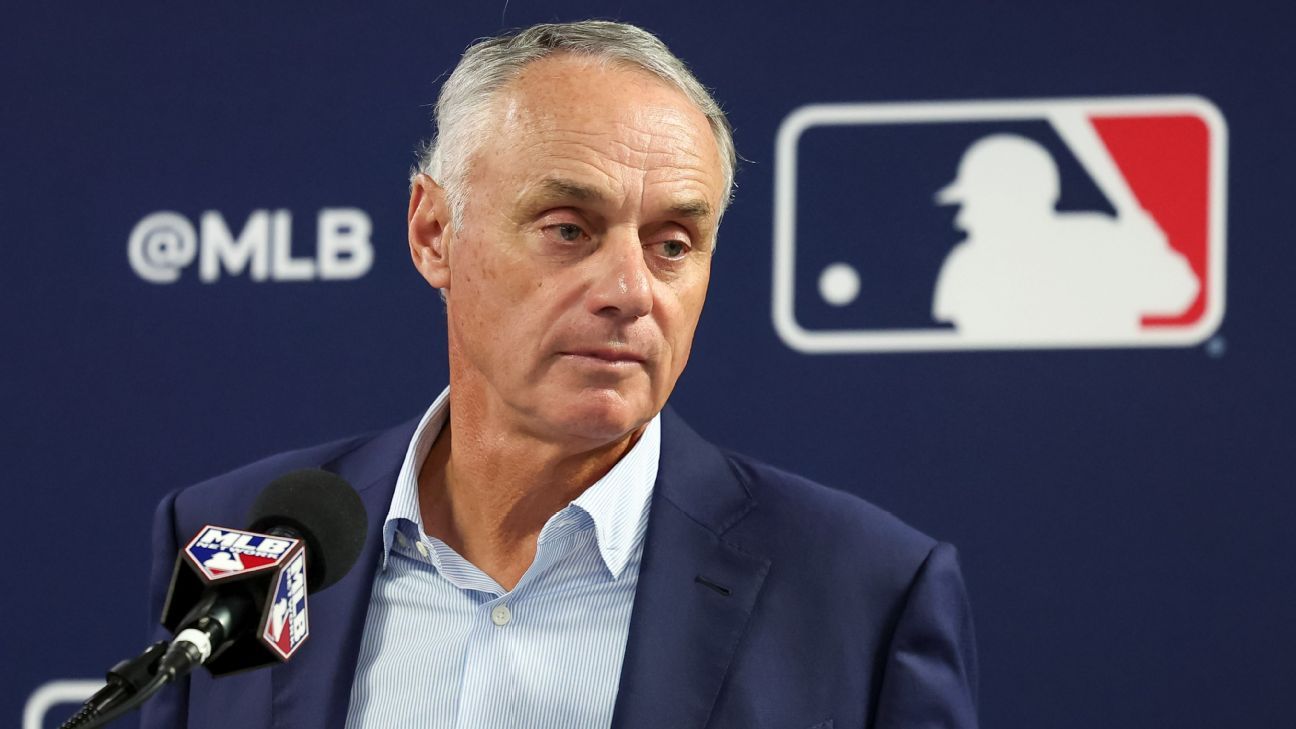LAS VEGAS — Even during those hot summer days spent in a trailer park outside Nashville, Tennessee, Caleb Plant knew he was meant for so much more.
Personal tragedy served to strengthen that steely resolve.
His daughter, Alia, died three months shy of her second birthday. Just over four years later, his mother, Beth, was killed in a shooting involving a police officer.
Plant pushed forward the only way he knew how: with unflappable personal discipline and dedication to his craft. His way out from the trailer park, his therapy for all the hurt, was the boxing ring.
His unbreakable will served him well when, as a 5-1 underdog, he upended Jose Uzcategui in 2019 to win a super middleweight title. And Plant (21-0, 12 KOs) is certain that confidence will lift him to victory once more in his biggest fight yet: Saturday’s meeting with pound-for-pound king Canelo Alvarez in Las Vegas for the undisputed super middleweight championship (9 p.m. ET, Showtime PPV).
“This didn’t happen by accident,” Plant, a 6-1 underdog, says moments before working out at City Boxing Club last month. “I planned this. I mapped this out, me and my dad when we first started.
“So I know how I got here: It was through my hard work and my dedication, through a lot of sacrifice and, most importantly, a lot of self-belief.”
PLANT GREW UP in Ashland City, a town 20 miles outside Nashville with a population of less than 5,000 and, according to the World Population Review, a poverty rate over 18%.
He was part of that 18%, a reality that was drilled into him when he would see celebrities on TV flaunting the latest clothes and cars. Plant dreamed of a better life, and boxing was his way there. He found the sport at age 9 and, along with his kickboxer father, Richie, mapped out a plan to escape not just poverty, but all the heartache.
“It made me really upset,” Plant, now 29, recalls. “Why do we have to be poor? Why can’t I have them clothes? Why can’t I have them shoes? Why can’t I live in that house? I would be in my room, sometimes emotionally upset, and thinking, ‘I’m not going to be like this forever.'”
He excelled in the amateurs, routinely participating in older age groups, and placed fourth at the 2010 USA Boxing National Championships. His success derived from quick combinations, a strong jab and fancy footwork. The other kids would see Plant go to work and say, “Man, you’ve got some sweet hands.” A boxing moniker was born.
“Not something I gave myself,” says “Sweethands” Plant.
On his way to earning a spot as an Olympic alternate for the 2012 Games in London, Plant won the National Golden Gloves at 178 pounds. The talent was apparent and the hard work was paying off. But he was still far away from realizing his dream.
“Teachers in school [were] telling me I need a Plan B: ‘What are the chances of you becoming a professional boxer?'” Plant said. “You have to stay committed. … This sport is a marathon, it’s not a sprint. You have to be patient.”
That patience has been tested in the pros. Plant turned professional in May 2014 with a first-round KO, but he wasn’t in a notable fight until January 2019. That was his first title bout, and he rose to the occasion with a decision victory over Uzcategui. Three routine title defenses followed against fighters with little hope of winning, and now Plant will be tasked with defeating not just the best fighter in the sport, but boxing’s biggest star.
The climb up the ranks to this weekend started when boxing manager Luis DeCubas Jr. discovered Plant in the lead-up to the Olympics at the box-offs in Colorado Springs, Colorado, and signed him shortly after. He’s been Plant’s manager ever since, with PBC founder Al Haymon the advisor.
“Him and Gervonta Davis were the two best fighters that I recall from that trip in Colorado,” DeCubas recalls. “I left there saying, ‘Wow, Caleb Plant and Gervonta Davis are going to be world champions and they’re going to be stars.’
“Caleb was just a sensational boxer. He had great legs, he had a very, very educated jab. I just knew he was a guy who would go far in the pro game.”
PLANT BECAME A father to a baby girl on May 7, 2013. Alia was born with a brain abnormality and suffered from seizures on a daily basis. On some days, Plant said, there would be as many as 150. They were living in Tennessee at the time and Alia had hundreds of blood tests conducted at Vanderbilt Hospital. There was no remedy found.
Alia’s life was spent in and out of the hospital, and Plant attempted to balance a blossoming boxing career with the pain and anguish of trying to keep his daughter alive.
He slept on hospital room floors after road work. He cancelled fights to be with his daughter. Tragically, she died on Jan. 29, 2015, but not before Plant made her a promise: He would become a world champion.
Plant later would deliver that red IBF 168-pound title belt to her gravesite, a vow fulfilled. But the pain and suffering persisted.
“Going through what he went through definitely makes a harder man or woman,” DeCubas said. “Any parent who loses a child, any [person] who loses a parent in tragic circumstances, it’s going to make you a harder person.”
Plant had learned how to be a man under the guidance of his father, who was for the most part solely responsible for raising Caleb and his younger sister, Madeline. Caleb’s mother, Beth, was in and out of the picture while dealing with what Caleb called her “demons.”
Many days, it was just the three of them — two kids and their dad — in a one-bedroom mobile home. Those were the days when Plant hoped and prayed for a better future.
With his boxing career lifting off, Plant relocated to Las Vegas in search of top-notch sparring as he moved up the ranks on Premier Boxing Champions cards.
His mother still lived in Tennessee and she was struggling. She was staying with a friend, who made a 911 call one Saturday morning for an ambulance, reportedly saying Beth Plant wasn’t making sense. According to the Cheatham County Sheriff’s Office, she pulled a knife from a backpack during the ride to the hospital and started stabbing at the windows.
Police bodycam footage shows a standoff with police afterward. Plant is holding a knife and, after she’s repeatedly told to drop the weapon, is shot by the deputy. She died on March 9, 2019, two months after Plant finally became world champion.
“I feel like I’m able to express myself through my [boxing],” Plant says. “I’m able to express my pain. … I can show [opponents] just a tiny glimpse — for a split second — of what it feels like to have the embarrassments of not having this or not having that.
“When I get to go to the gym or go to the fight or sparring or training, it’s like a sanctuary. If you look back over my life, there’s been a lot of things that have happened that I really haven’t had any control over, from my childhood to where I grew up to what went on in the household to stuff with my mother, to my daughter. The list goes on and on.
“I was someone who no one would want to be. But when I got to go to the boxing gym, even at a young age, I was somebody who everybody wanted to be. It was almost like a drug that I became addicted to.”
THEY STOOD NOSE to nose at the Beverly Hilton in September, Plant finally facing the kind of opportunity he always envisioned. He wasn’t backing down. He’d come too far.
Behind sunglasses, Plant shouted at Canelo Alvarez. Surprisingly, the Mexican star attacked with an open-handed strike. Plant connected, too, but he was the one who emerged with a cut under his right eye, the result of his shades pushing against his cheek.
The exchange went viral. This lifted Plant, who despite his status as champion was relatively obscure, to a national headline. Alvarez is usually reserved, but Plant got under his skin.
He called Alvarez a cheater, a nod to Canelo’s positive test for the banned substance clenbuterol ahead of his 2018 rematch with Gennadiy Golovkin. (Alvarez blamed tainted meat consumed in Mexico.) Plant was vocal with doping accusations on Twitter after the fight was signed, ending months of contentious negotiations and dragged out discussions that pushed the bout from Sept. 18 to Nov. 6.
Perhaps most irritatingly of all for Canelo, Plant hurled insults at his beloved longtime trainer, Eddy Reynoso. This was personal for Alvarez, even if it wasn’t necessarily for Plant.
“It has nothing to do with him; he’s in the way of what I want to accomplish,” says Plant, who is guaranteed a career-high purse of $10 million. “He’s in the way of everything I’ve worked for and dreamed of.
“This isn’t like a show; I don’t do things for promotion. I don’t have a persona or anything like that that I’m trying to live up to. Clearly something about me bothers him. I’m not sure what it is.”
Plant, ESPN’s No. 3 super middleweight, is undoubtedly talented yet unproven, at least in comparison to Alvarez. His trainer, Justin Gamber, acknowledges, “We have about as many pro bouts as he does championship fights, bottom line.”
The talent shines through in Plant’s world-class jab that dictates the pace of fights and his brilliant footwork that allows him to escape trouble. But his best opponent thus far has been Uzcategui, levels below Alvarez. In fact, there’s no boxer on the planet who comes close to Canelo at the moment. He’s the unquestioned pound-for-pound No. 1 boxer by a mile, and his popularity equals the skill.
When Plant steps in the ring, he’ll do so in hostile territory before Alvarez’s legion of Mexican fans. But the adversity Plant will face inside the ring Saturday will surely pale in comparison to what he’s already endured outside those ropes.
“I’ve always been a fighter who can step up to the occasion; I do best when there’s a lot of pressure on the line,” he says. “When the lights are on and it’s time to put my best foot forward, I always do that, in or out of the ring.
“I’m not just here to hand my belt over. I’m not just here to pick up a check and be quiet and let him ride off into the sunset. I’m here to win this fight and I’m going to win this fight.”





